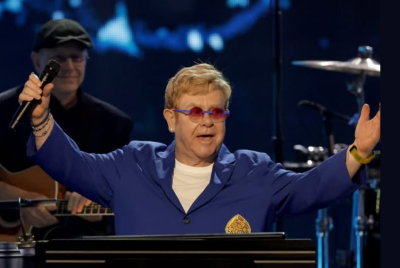Dave Ball, 66, Dies Peacefully in His Sleep Less Than Two Months After Final Performance

Dave Ball, the pioneering synth-pop musician and one-half of the iconic duo Soft Cell, has passed away peacefully at the age of 66. His death comes less than two months after performing at the Rewind Festival in Henley-on-Thames, marking the end of a remarkable career that shaped the landscape of electronic music.
Ball passed away peacefully in his sleep at his London home on Wednesday. His death comes just weeks after performing with Soft Cell in a wheelchair, demonstrating his enduring passion for music despite health challenges.
Tributes to Ball have poured in on the group's official website, reflecting on his artistic legacy and contributions to the synth-pop movement. Over the past few years, Ball faced significant health setbacks, including a fractured vertebra, broken ribs, pneumonia, and sepsis, which led to a seven-month coma.
Despite these challenges, Ball remained resilient and focused on his work. He was reportedly in good spirits and collaborating with Almond on a new album before his untimely death, showcasing his unwavering dedication to music.
Dave Ball: The Rise of a Synth-Pop Icon
Born in Chester in 1959 and raised in Blackpool, Dave Ball's early years were defined by his fascination with sound and technology. Inspired by Kraftwerk's experimental electronic music, he developed a passion for synthesisers, which became the hallmark of his career.
After meeting Marc Almond at Leeds Polytechnic in 1977, Ball formed Soft Cell, a duo that would revolutionise synth-pop. Their 1981 cover of Gloria Jones' 'Tainted Love' became a global sensation, selling over 21 million copies and establishing them as pioneers of the genre.
The minimalist yet emotionally charged arrangement of the track, paired with Almond's theatrical vocals, created a blueprint for electronic duos in the 1980s. Hits such as 'Bedsitter' and 'Say Hello, Wave Goodbye' further cemented their place in music history, with their debut album 'Non-Stop Erotic Cabaret' going platinum in the UK.
Challenges and Collaborations
Despite their success, Soft Cell disbanded in 1984, with Ball and Almond pursuing separate ventures. Ball explored various musical avenues, collaborating with Genesis P-Orridge on film soundtracks and forming The Grid with Richard Norris.
The Grid blended acid house with ambient pop, achieving critical and commercial success with hits like 'Swamp Thing.' Ball's career was not without challenges. He faced personal struggles, including drug addiction, and health issues that culminated in a serious back injury in 2022.
After sustaining fractures and developing sepsis, he spent seven months in hospital, including time in an induced coma. Despite these setbacks, Ball remained resilient and continued to create music. His ability to adapt and evolve musically, transitioning from synth-pop to techno and house, showcased his versatility and commitment to pushing creative boundaries.
Ball's collaborations extended beyond his own projects. He worked as a producer for other artists, including contributing to Kylie Minogue's 1997 album 'Impossible Princess.'
His talent for blending electronic innovation with mainstream appeal made him a sought-after figure in the music industry. In the 2000s, he reunited with Almond, leading to Soft Cell's live performances and new projects, including the release of 'Cruelty Without Beauty' in 2002.
Dave Ball's Final Years and Lasting Legacy
In his final years, Ball remained dedicated to his craft. Just days before his death, he completed Soft Cell's latest album, 'Danceteria,' inspired by the vibrant New York club scene of the 1980s.
Almond described Ball as being in a "great place emotionally," focused and proud of their new work. Tributes from collaborators and fans have highlighted Ball's immense contributions to music, praising his creativity, friendship, and humour. His pioneering work with synthesisers not only defined the sound of a generation but also paved the way for future electronic artists.
Dave Ball's passing signifies the loss of a true musical visionary whose influence transcends decades. His ability to merge groundbreaking electronic sounds with emotional depth leaves a legacy that will continue to inspire and resonate with audiences worldwide. As one-half of Soft Cell and a luminary of electronic music, Ball's contributions remain timeless, ensuring his place in the pantheon of musical greats.
© Copyright IBTimes 2025. All rights reserved.





















